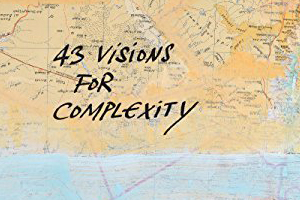
43 Visions for Complexity
Coping with the complexities of the social world in the 21st century requires deeper quantitative and predictive understanding. Forty-three internationally acclaimed scientists and thinkers share their vision for complexity science in the next decade in this invaluable book. Topics cover how complexity and big data science could help society to tackle the great challenges ahead, and how the newly established Complexity Science Hub Vienna might be a facilitator on this path.
Contents:
- Where Creativity and Innovation are Much Needed Fuels (Vittorio Loreto)
- Inevitability of Interdisciplinary Approaches (Bertil Andersson)
- Complexity is Practical in Its Insights (W Brian Arthur)
- The Prediction Paradigm has to Shift (Paul Bourgine)
- The Net will be the Place Where Most Interactions will Take Place (Guido Caldarelli)
- Human Behavior is Extremely Predictable (Simon De Deo)
- Society has Become a Global Information Processing System (Tiziana Di Matteo)
- Complexity is the Science of Integration (Albert Diaz-Guilera)
- We have an Increasing Need to Model Ourselves (J Doyne Farmer)
- Entering an Era of Synthesis of Modeling (Stephen Guerin)
- We Need to Build an Upgraded, Digital Democracy (Dirk Helbing)
- It is an Illusion to Think That Things Exist (Henrik Jeldtoft Jensen)
- The Adjacent Possible is Relational (Stuart Kauffman)
- Results can be Used for Better or Worse (János Kertész)
- The Law of Unintended Consequences (Imre Kondor)
- We Ignore the Disciplines (David Krakauer)
- Social Media Blurred the Distinction Between Author and Reader (Renaud Lambiotte)
- Infrastructure Tsunami Could Easily Dwarf Climate Change (Stephen Lansing)
- Cost to Set Up Common Languages (Vito Latora)
- Address the Major Societal Challenges (Manfred Laubichler)
- The Approach of Statistically Validated Networks also Detects Under-Expressions (Rosario Nunzio Mantegna)
- The Socio-Technical Man (Yamir Moreno)
- The Embarrassment of Complexity (Helga Nowotny)
- Forget About Our Concepts and Start Playing (Olaf Osten)
- It Should be Studied and Tailored to Each Problem (Luciano Pietronero)
- Pave the Way Towards Better Human Societies (Matjaž Perc)
- Funding Agencies Rarely Tend to Risk Their Money (Andrea Rapisarda)
- What is New in Understanding How the Whole Works (Maxi San Miguel)
- It Offers the Appropriate 'Big-Picture' (Markus Schläpfer)
- Solve the Dilemma of Oversimplification (Gerhard Schmitt)
- Definitions of Complexity are Notoriously Difficult (Peter Schuster)
- Complexity Science will Finally Become Useful (Frank Schweitzer)
- There is a Danger That the Quest for Simplification is Washed Out with the Emergence of Big Data (Kim Sneppen)
- Logical Interactions in an Expanded Space (Bosiljka Tadić)
- Invite Everyone in the Conversation About Our Common Future (Francois Taddei)
- Data-Driven Dark Ages (Stefan Thurner)
- Like Beauty, Complexity is Hard to Define (Constantino Tsallis)
- The Value of Knowledge is in Its Use (Jan W Vasbinder)
- Size Does Matter (Alessandro Vespignani)
- Is a Universal Science of Complexity Conceivable? (Geoffrey B West)
- We Need More Migration Between the Sciences (Karoline Wiesner)
- More Likely We Would be Ritually Slaughtered (Peter M A Sloot)
- There is a Danger That the Quest for Simplification is Washed Out with the Emergence of Big Data (Kim Sneppen)
- Invite Everyone in the Conversation about Our Common Future (Francois Taddei)
- Logical Interactions in an Expanded Space (Bosiljka Tadić)
- Data Driven Dark Ages (Stefan Thurner)
- Like Beauty, Complexity is Hard to Define (Constantino Tsallis)
- The Value of Knowledge is in Its Use (Jan W Vasbinder)
- Size Does Matter (Alessandro Vespignani)
- Is a Universal Science of Complexity Conceivable? (Geoffrey B West)
- We Need More Migration Between the Sciences (Karoline Wiesner)
- How Does Innovation Push Its Boundaries? (Hyejin Youn)

 CONNECT
CONNECT

